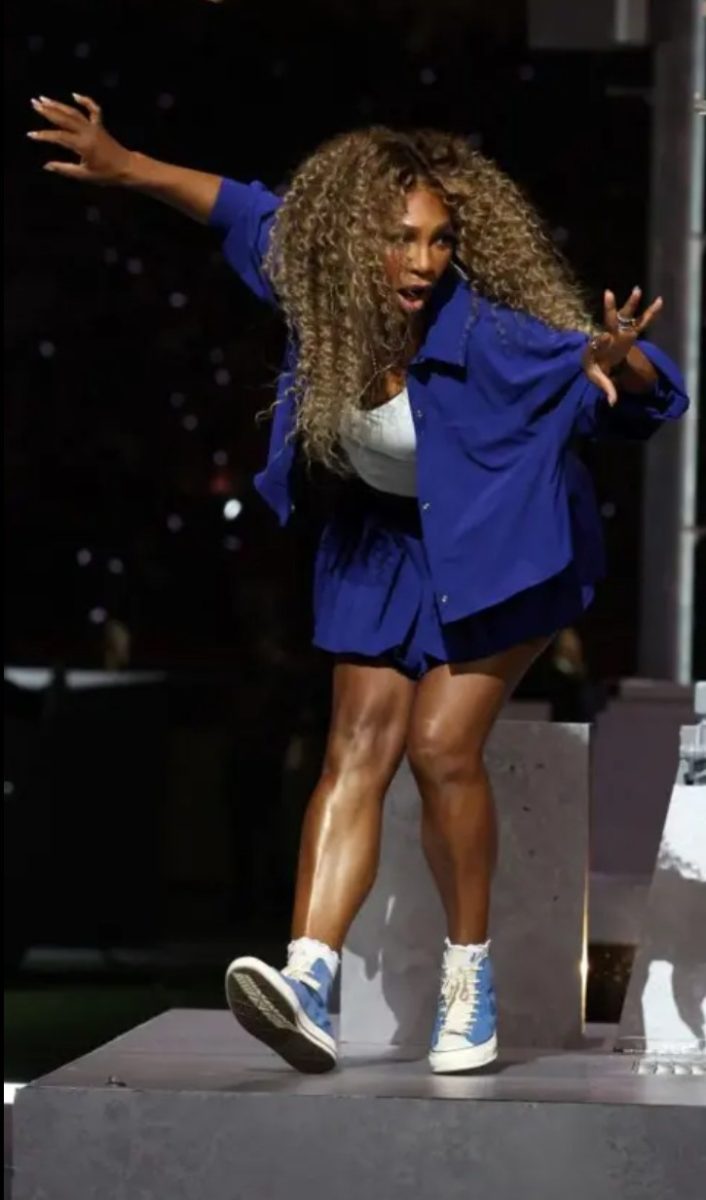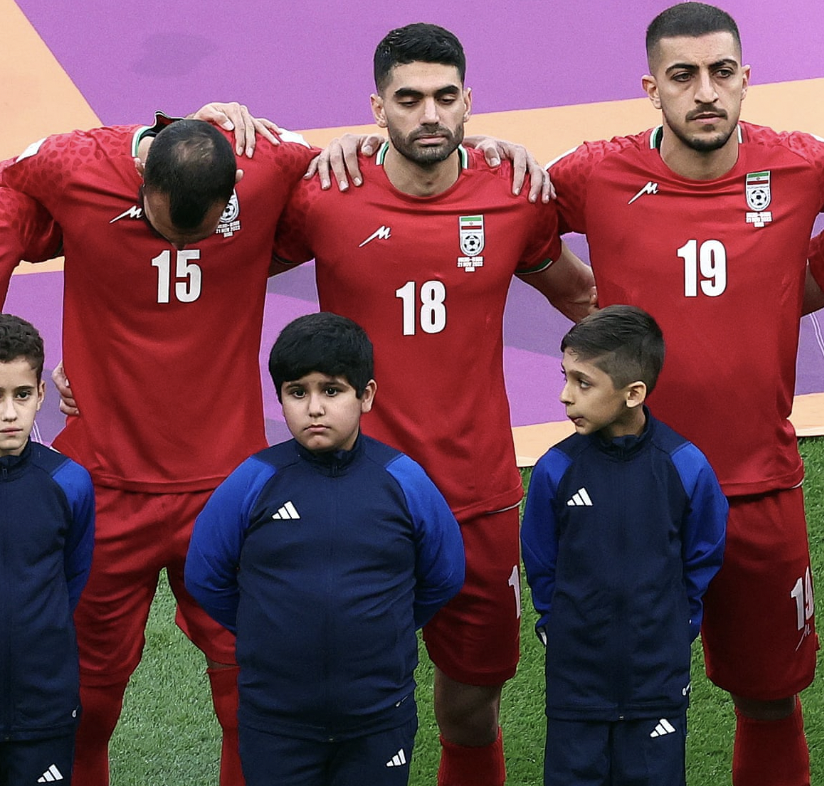When Sports Meets Politics
Cheshmi, Karimi, and Hosseini are pictured in grim silence as the Iranian national anthem plays.
January 3, 2023
The world cup, notably defined as one of the largest sports events around the globe, has been covered by countless news sources hourly since the start of the 2022 world cup. Many teams deemed as “underdogs” have made it higher and higher in the brackets, surpassing many predictions made by sports analysts. One of these teams is the Iranian national team.
Iran’s civil disputes have gotten significantly worse since the arrest and sudden death of Mahsa Amini. Protests against the Islamic Republic government continue on daily, involving thousands more arrests and even deaths.
During these political protests, the world cup has begun, and the Iranian soccer team took their chance of the attention of the media and audience to not sing their Iranian national anthem. This silence spoke volumes about how the people of Iran are fighting as a whole against their government. This only took place in one game though, which was their opening match.
Now, there are other times this has happened before. In the NBA, for example, many players have spread their voices on topics like police brutality and racism as a whole. LeBron James, among other players nearly a decade ago, wore “I can’t breathe” shirts in response to the killing of a black man in police custody in 2014. Colin Kaepernick, an NFL player who was spread across nearly every news source after he was removed from the league for kneeling during the pledge of allegiance.
There have been other times when protests have started as a result of something that media moguls of that sport said. For example, when Hungarian swimmer Katinka Hosszu was faced with responses to her Olympic gold medal-winning with praise for her coaches and the “men in her life.”
A very popular controversial topic in the world of sports is the U.S. women’s national soccer team pay wage gap. A few years ago, some members of the team filed a complaint, explaining that “despite the women’s team generating nearly $20 million more revenue last year than the U.S. men’s team, the women are paid about a quarter of what the men earn.” Nandini Trivedi (11) said, “This argument completely defeated the argument that U.S. women’s soccer simply brings in less money” when asked about recalling what she thought when she heard this news.
Overall, sports are shown as a place where protest can take place. A place where a player can rile up their audience and spread their voice and opinion while raising awareness.






































Tiana Salisbury • Mar 23, 2023 at 7:30 AM
Great article, Anvi! I find it interesting that players can use their games as a way to spread awareness about ongoing issues.
Rishika Puri • Mar 2, 2023 at 7:34 AM
I enjoyed this article because it perfectly covers how people can get together and unite over such a large issue. This article describes in detail how a country can unite and also ties in other similar issues. Really well written, and all the crucial details are explained perfectly.